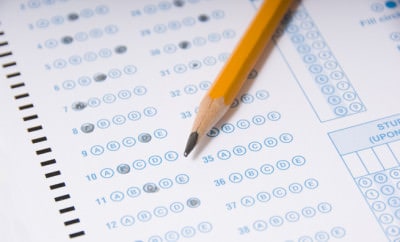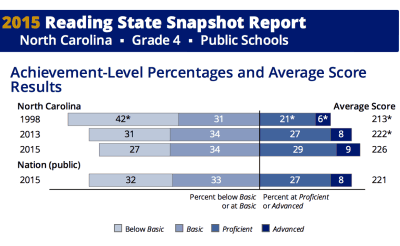
This perspective was originally published in The News & Observer on October 27, 2015.
In 2013, the General Assembly passed legislation requiring the State Board of Education to assign a letter grade not to each student but to each school. The G.A. recently doubled down on this system by redefining “low-performing school/district” statuses.
Oh, the irony of no longer giving letter grades to students in Durham elementary schools because they don’t tell us enough about how the child is actually learning or performing. Now, let’s just give one letter grade to our schools, the principals, the teachers, the support staff, the parents and, most damaging, the students.
Oh, the irony of having my first parent-teacher conference and being absolutely awestruck and amazed at the variety, quality and quantity of work the teachers do at my “F” and “low-performing” school.
Oh, the irony of beaming with pride each day as I watch my son blossom with language and math skills that he did not have the day before, skills he learned at this “F” and “low-performing” school.
As a proud parent of a kindergartner at Lakewood Elementary School and PTA president, I will wear that “F” using Hester Prynne as inspiration. I am confident my own child will be instilled with the same strength of character, honesty and compassion Nathaniel Hawthorne describes in “The Scarlet Letter” by attending Lakewood Elementary.
In the meantime, I give the N.C. General Assembly an “F” and “low-performing” status for failing the public school system with implementing the awful letter grade system (among other things). This grading system, which has been shown to correlate directly with income, further separates the rich from the poor. This grading system is psychologically damaging to staff, children and parents of “low-performing” schools. What kind of message are we sending?
Parents frightened by the label of a low-performance school should be encouraged to take a chance. Visit the neighborhood school. They will be pleasantly surprised to learn of the fabulous things their local public school is doing. Talk to the teachers. Talk to the parents. Be open-minded. I know I am so grateful I have chosen a “low-performance” school for my child.




